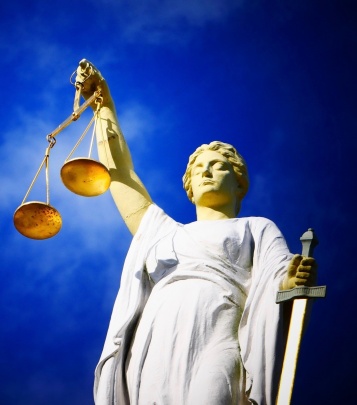 What is freedom? Here in America, we sing that ours is “the land of the free.” But, of course, building a free society requires that we put laws in place that actually limit some freedoms. We recognize that these limitations are for the good of our common community. It’s clear in our day-to-day living that human freedom, the ideal for which we strive, is not license to do whatever we want in any given situation. Our freedom must be ordered to a higher good that sometimes transcends our own desires.
What is freedom? Here in America, we sing that ours is “the land of the free.” But, of course, building a free society requires that we put laws in place that actually limit some freedoms. We recognize that these limitations are for the good of our common community. It’s clear in our day-to-day living that human freedom, the ideal for which we strive, is not license to do whatever we want in any given situation. Our freedom must be ordered to a higher good that sometimes transcends our own desires.
In our Catholic worldview, freedom is to be ordered not only to the common good—we understand that “freedom attains perfection in its acts when directed toward God, the sovereign Good” (CCC 1744). That is, the more we align our wills to the highest of laws and the closer we are to God, the more we can see reality as he does. And the more we act and choose in conformity with how God sees, the more free we become. For the Christian, that word “conformity” is not at all antagonistic to the notion of freedom. The paradox here is that while thinking and seeing and choosing according to God’s law will place limitations on us, these limitations actually free us from a slavery to self or, more broadly, to the whims of a society that has always, in some respects, been headed off the rails. In this alignment to God’s way of seeing reality, we become truly free to choose to love—to live in the freedom that comes with willing the good of others.
Of course, civic society also puts limitations on us. To use a basic example, if we decided that we would not allow our driving to be governed by stop signs, stop lights, and speed limits, would we be more free? Or would the “freedom” from such restrictions make the roads a chaotic and unsafe place where no one was truly free to get from point A to point B without fear and danger?
Here is perhaps a better example. Many of us are familiar with the novel and musical Les Misérables. We might remember the scene where the story’s protagonist, Jean Valjean, who had been living under an assumed identity to avoid being sent back to prison, discovers that another man was to be mistakenly condemned in his place to serve the prison time awaiting him. Jean Valjean has a free choice: to continue in his assumed identity and allow this other man to be falsely sentenced or to step forward and reveal himself. In a scene fraught with intensity, he concludes that his freedom must conform to truth and goodness. In the musical, even as he embraces a choice that will cost him greatly, the music bursts forth with this decision, indicating the beauty that comes with freedom exercised in service of the true and the good. In the book, Victor Hugo puts these words on Valjean’s lips as he steps into the courtroom: “Release this man! I am fulfilling a duty; I am that miserable criminal . . . God, who is on high, looks down on what I am doing at this moment, and that suffices. You can take me, for here I am.”i
The freedom of the human person, then, is not correctly understood when it is seen as only a freedom “from” (obligation, truth, the true good of others, etc.). Rather, authentic human freedom is a freedom “for”—a freedom that comes with the responsibility for choosing the true and the good. This is the concept of freedom that must animate our teaching of the faith. Those we teach are so in need of this good news.
Ultimately (and this may come as a surprise), the Mass is the place where we can experience our freedom most keenly. The Catechism of the Catholic Church explains: “The worship of the One God sets man free from turning in on himself, from the slavery of sin, and the idolatry of the world” (2097). Adoring God and receiving the free gift of his divine life in the liturgy is where we are our best selves. Worship directs our gaze upward, away from ourselves and our petty bondages. Making a free gift of ourselves to God and receiving the total and complete gift of his presence and grace is a foretaste of the freedom reserved for all those in heavenly glory.
Dr. James Pauley is Professor of Theology and Catechetics at Franciscan University and author of two books focused on the renewal of catechesis: An Evangelizing Catechesis: Teaching from Your Encounter with Christ (Our Sunday Visitor, 2020), and the newly published revised edition of Liturgical Catechesis in the 21st Century: A School of Discipleship (Liturgy Training Publications, 2022).
Note
i Victor Hugo, Les Miserables (San Diego, CA: Canterbury Classics, 2012), 251.
This article originally appeared on page 6 of the printed edition.
Photo by Edward Lich, public domain at Pixabay.com.
